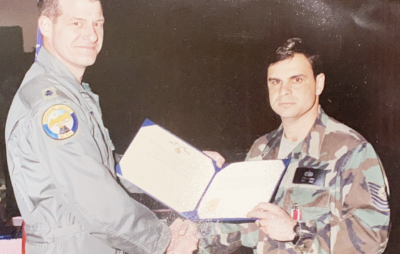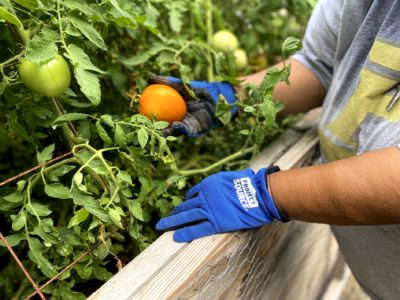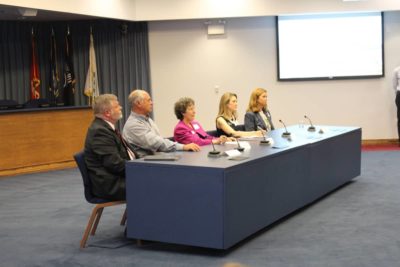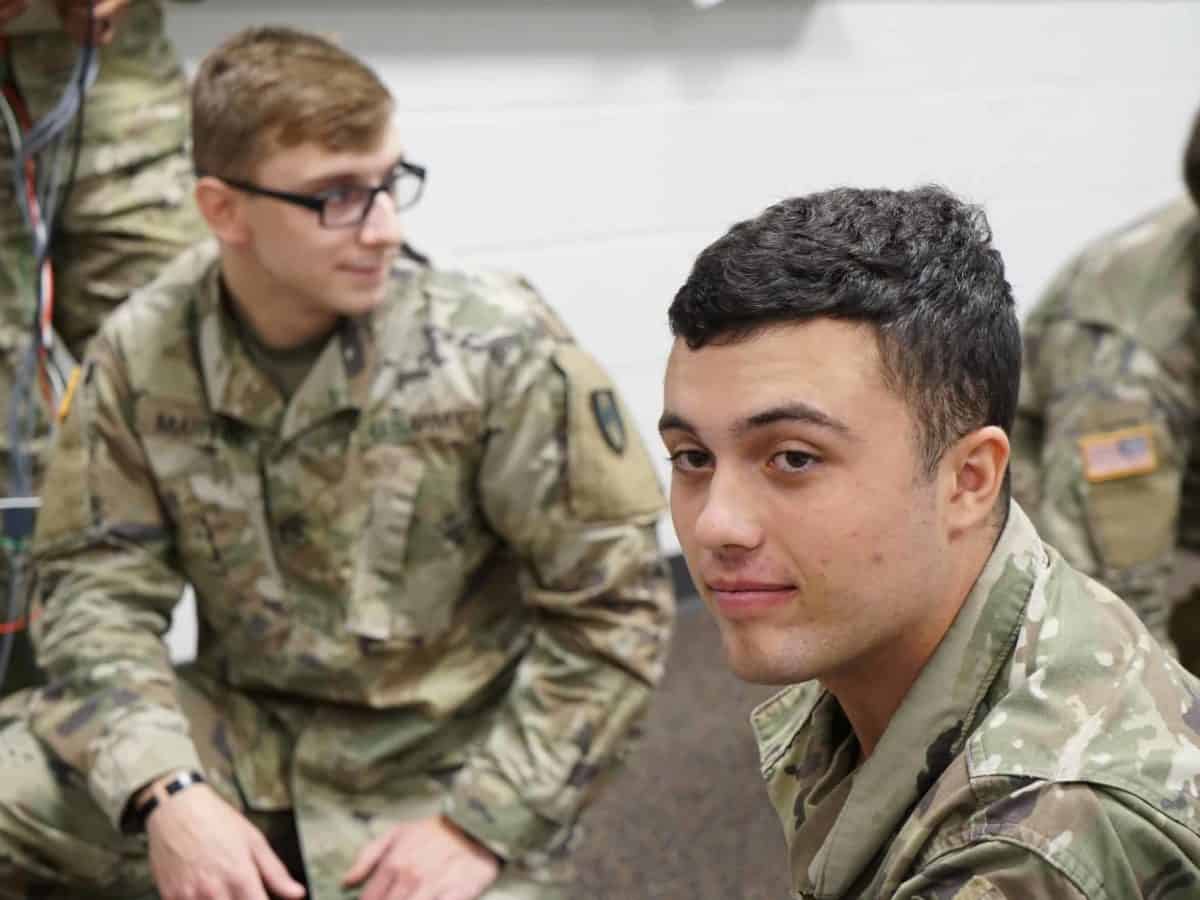

Share this story
- Nearly 5% of students at public community colleges are veterans, according to a 2019 report from the American Association of Community Colleges. Here's how N.C. community colleges are supporting them.
- “Especially for people who have served our country – they've sacrificed,” said Jennifer Servi-Roberts, director of Veterans Upward Bound and Military Affiliated Initiatives. “How can we help them move on to the next thing?”
|
|
Thaddeus Hickman has a winding educational journey.
Contents
Like many adult learners, he’s attended several community colleges, taken time off, and attended night classes while working full time.
Hickman, 56, is also part of a smaller subset of students: veterans.
“I’m a disabled veteran,” he said. “I live alone. I have my dog – but a lot of the challenges are just me being able to get there on time.”
Nearly 5% of students at public community colleges are veterans, according to a 2019 report from the American Association of Community Colleges. Military veterans are more likely to complete postsecondary programs than their non-veteran peers, a 2018 report by Veterans Education Success found, but tend to take longer to do so.
Like other adult learners, veteran students are more likely to have responsibilities outside of college. Student veterans also face challenges navigating financial aid, veteran education benefits, and transitioning from an organized and hierarchical style of learning, said Central Carolina Community College’s Jennifer Servi-Roberts. Disabled veterans like Hickman face additional completion barriers, the Veterans Education Success report said.
“Your veteran and military affiliated students typically retain better and they graduate at higher rates. So they’re really strong students,” said Servi-Roberts, the director of Veterans Upward Bound and Military Affiliated Initiatives. “Sometimes when the other students in the class are not so focused, or don’t take it as seriously or don’t respect authority, that can be distracting or frustrating.
“And then just transitioning from military life, where everything is very scheduled and now you’re making decisions about how your time is allotted – adjusting to that can be challenging,” she added. “Just being in a class where you don’t feel like anybody really shares the same life experiences that you do is challenging as well.”
‘Make that transition easier’
Veterans Upward Bound (VUB) is one of eight federal TRIO programs. The program “motivates and assists veterans in the development of academic and other requisite skills necessary for acceptance and success in a program of postsecondary education,” according to its the U.S. Department of Education. The VUB at Central Carolina Community College (CCCC) supports 125 students across Wake, Lee, Johnston, Harnett, and Chatham counties.
That’s where Hickman found out about VUB.
He started in CCCC’s business administration program last January after taking time off from school to care for his father with dementia. Before that, he took classes at Craven Community College and Pitt Community College. During that time, he started a clothing business and managed a Burger King.
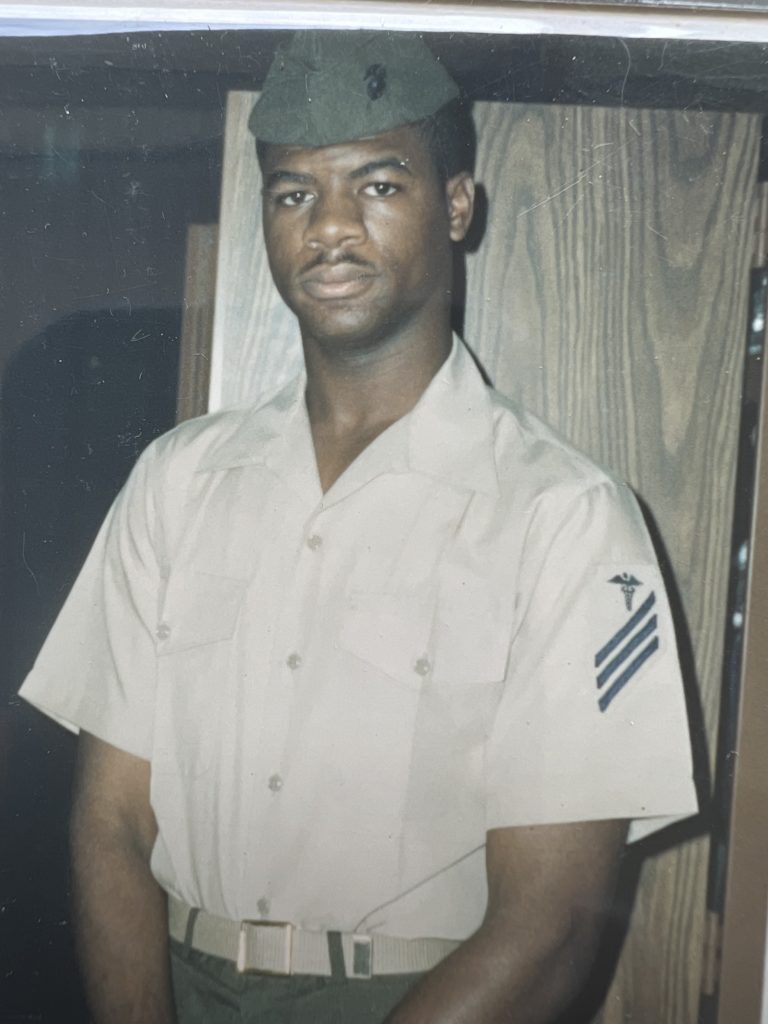

Hickman joined the military in 1985, where he served eight years in the U.S. Navy and Marine Corps. Soon after he began his community college journey.
But when he started the two-year business program last January, balancing online with in-person courses was a challenge.
“I struggled when I first started,” he said, “and that’s because I’m more of an in-the-classroom type of person.”
Around that time, he received an email from Servi-Roberts regarding events offered by VUB.
“I went out there to check it out, and I’ve been going ever since,” Hickman said. “It helps a great deal because it gives me a lot of motivation, that there’s someone there I can turn to who can help me. If they can’t, they can direct me to someone who can.”
VUB offers students like Hickman admissions and aid support, including help understanding their GI Bill benefits. The program hosts events to connect students with other veterans and provides space for students to do homework and de-stress. (“I like that little room,” Hickman said of the room at CCCC’s Sanford campus.)
Servi-Roberts and her team – Anthony Farrior and Karmisha Hernandez – also help veterans navigate situations or challenges unique to them. VUB, for example, previously helped Hickman communicate with professors about late or missed class.
VUB also hosts college exploration events, like the one on Monday, June 27 at CCCC. The event informed potential students about admission processes and available resources.
“We really work hard with veterans after they’ve transitioned out of service and they want to go to college, trying to wrap them all up in support services to make that transition easier,” she said.
“We can say, ‘Okay, we’re here with you — we know this is a difficult process, but we’re here with you each step making sure that you’re getting through it and getting the results that you want.’”
Jennifer Servi-Roberts, Central Carolina Community College
‘Check out all the resources available to you’
Servi-Roberts also leads Green Zone trainings to help faculty and staff understand “the challenges and also the strengths of our veteran and military-affiliated students.” There are 37 Green Zone trained employees at CCCC, according to the college’s website.
The training is an hour and 15 minutes long and covers what staff can do to support veteran students. UNC Wilmington helped the college design the training, Servi-Roberts said. CCCC typically offers the training twice a semester.
“They bring a lot of really wonderful things,” Servi-Roberts said of veterans. “And then they also have different barriers, so Green Zone training talks about some of the challenges.”
Other N.C. community colleges offer Green Zone training, too. At Nash Community College, Dean of Student Success Marbeth Holmes said the college began offering the training in recent years.
“We see images from war on TV on a regular basis,” Holmes said during the UNC System’s virtual 2022 Behavior Health Convening in March. “We really started to recognize we needed to do Green Zone training for all of our team as well because our veterans are starting to be here.”
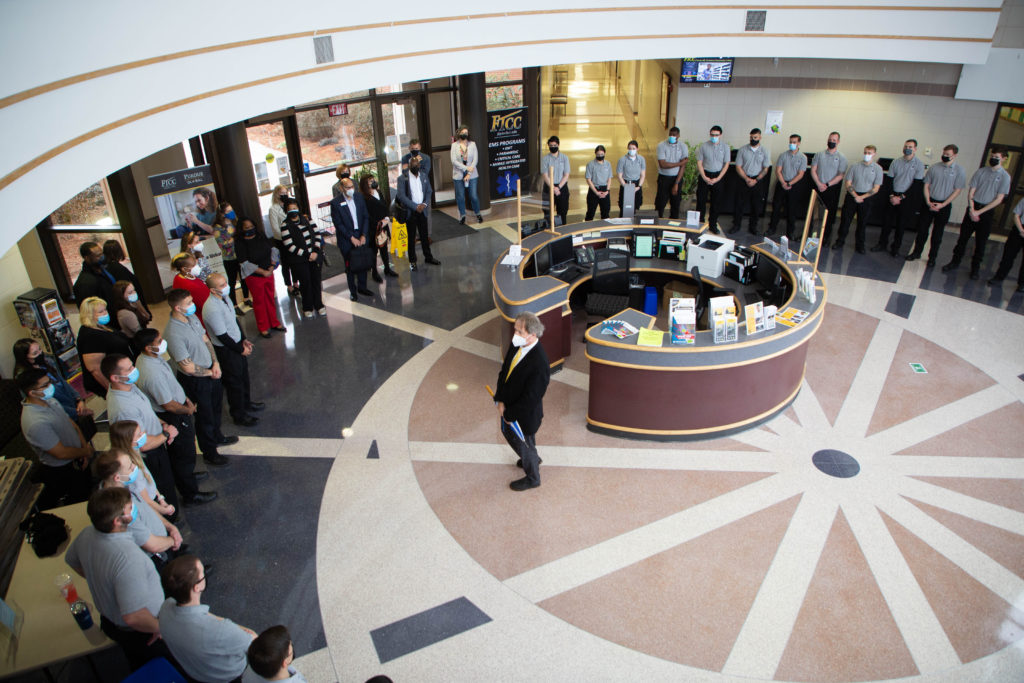

Community colleges located in areas with large military populations often have additional supports. Fayetteville Technical Community College, which is near Fort Bragg, has a standalone All American Veterans Center.
The college also offers Transition Tech, a training program for transitioning military service members entering the civilian workforce. Those courses are free to veterans and active military in transition, according to the college’s website, through a partnership with N.C. Works.
Fayetteville Tech also has a Student Veterans of America (SVA) chapter.
“The nation’s renewed focus on veteran welfare has ignited change on campuses and in congress. SVA is committed to capitalizing on this momentum to ensure today’s and tomorrow’s veterans are supported in their transition to education and employment,” the school’s website says. “Through fundraising for veteran scholarships and volunteering in the community, we strive to give back and create a welcoming environment for veterans on campus.”
At the UNC conference in March, Holmes stressed the importance of building trust with students.
Nash Community College offers a variety of wellness and academic assistance programs, which Holmes said led to higher semester completion rates and higher grades when students used them.
“We have unconditional positive regard for all of our students, and we work very hard to build trust. If they trust us, they will utilize our service. If they utilize our service, their work and their stability and their wellness will improve. So that’s fundamental.”
Marbeth Holmes, Nash Community College
Moving forward, Servi-Roberts said her team is working to increase communication with students. They want to better support the needs of veterans – not only through the resources offered, but also by when and where those resources are offered.
Some students might only come to one or two events, while others attend all refresher classes and workshops. Hickman encouraged other veterans considering higher education to tour a campus if possible and ask about available resources.
“Check out all the resources available to you, because I didn’t know of all the resources that the school actually offers,” he said. “I’ve been looking into a lot of resources such as the free tutoring for math and English – I just didn’t ever think that they had that for you.”
Higher education is life changing, Servi-Roberts said, so long as people can access it. She sees the primary goal of VUB as helping students succeed to actually experience the benefits higher education offers.
“Especially for people who have served our country – they’ve sacrificed,” she said. “How can we help them move on to the next thing?”
Are you a veteran student or faculty member interested in sharing your story? Or a community college proud of your work in this area? We’d love to hear from you. Email Reporter Hannah McClellan at hmcclellan@ednc.org.
Military and veteran resources
- Veterans Crisis Line: Connect with the Veterans Crisis Line to reach caring, qualified responders with the Department of Veterans Affairs. Call (1-800-273-8255 and Press 1), chat online, and text including support for deaf and hard of hearing.
- NCServes/NCCare360 coordinates care for the community’s active duty, veterans, and military connected families. Community resource information is available for all 100 N.C. counties and includes more than 13,000 service listings and 26,000 service locations for most types of need. To find resources across the state, please search at this website. To request immediate assistance, please call 2-1-1 or submit the Assistance Request Form.
- NC STRIVE’s list of veteran resources at colleges in the state, including community colleges.
- In Johnston, Wake, Lee, Harnett, and Chatham counties, Veterans Upward Bound is designed to motivate and assist veterans in the development of academic and other requisite skills necessary for acceptance and success in a program of postsecondary education. Call Director Jennifer Servi-Roberts at 919-718-7539 for more information.



